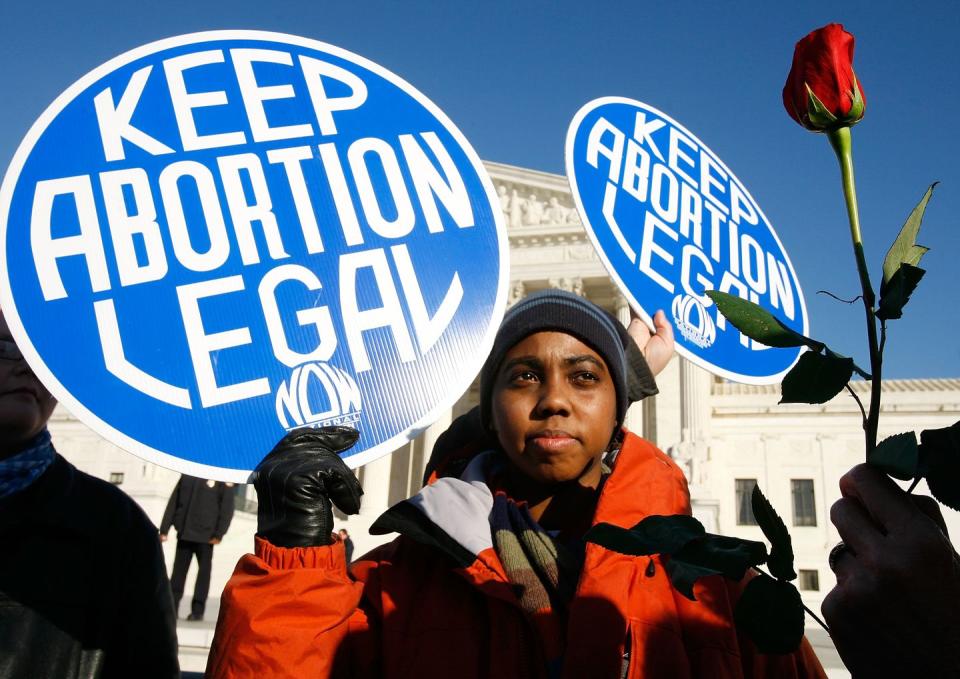Black Women, Women of Color Will Be Disproportionately Affected by SCOTUS's Ruling on Birth Control

The latest blow to reproductive rights in the United States came Wednesday, when the Supreme Court ruled in favor of a Trump administration directive that allows employers to revoke contraceptive coverage mandated under the Affordable Care Act due to religious or moral objections. The ruling may lead to around 126,000 women, as well as many transgender and gender-nonconforming people, losing access to birth control.
As with most matters of institutionally backed repressions, the people who will be disproportionately affected by the Supreme Court's decision are Black, minorities, or those who come from low-income backgrounds. The ruling also comes amid what The New York Times recently called "the largest movement in U.S. history": the Black Lives Matter movement. For the past month, thousands of protesters across the country have poured into the streets for daily demonstrations against a racially unjust status quo. The Supreme Court's 7–2 ruling that upheld the Trump administration's chipping away of reproductive rights may yet become another rallying cry for these disgruntled masses.
"The reproductive justice movement was born out of the intersections of race, gender, and class, all issues that tie directly into the ability to have a child, not have a child, and be able to start and raise your family with dignity and respect," says Nourbese Flint, the policy director of Black Women for Wellness, in a statement to BAZAAR.com. "Black women in this country know all too well what it means not to have autonomy over their bodies. From having nonconsensual medical experiments performed to forced sterilizations, there is a history that shows when other people are choosing what our health care looks like, we lose."
For those relying on contraceptive coverage via their employers' insurance plans, the ruling may also mean paying hundreds of dollars out of pocket per year in order to continue using contraceptives. The Department of Health and Human Services estimates that costs for each person who loses coverage could reach up to $584 annually—an amount that could make birth control inaccessible and unaffordable to many.
A 2017 survey, for example, reported that only 39 percent of Black women between the ages of 18 and 44 could afford $10 or less if they needed birth control today. And a 2014 survey conducted by Planned Parenthood reported that 57 percent of young Latina women struggle with the cost of prescription birth control.

Health care disparities along racial and class lines have also long persisted in the United States. The Kaiser Family Foundation found that Black and American Indian or Alaska Native people fare worse than their white counterparts across most examined measures of health, from birth risks and infant mortality rates to HIV and AIDS diagnoses.
"Of the over 50 percent of [Asian American Pacific Islander] women who are of reproductive age, data show that they are using less effective, cheaper contraceptive methods at much higher rates compared to women of other races and ethnicities," said the National Asian Pacific American Women's Forum in a press release. "Women in the low-wage workforce are less likely to have parental leave or predictable or flexible work schedules and are among the most impacted by pregnancy discrimination. These rules will also only serve to exacerbate gender wage disparities, particularly those for women of color who face the highest wage gaps."
President Trump and his administrators have attempted to undermine the country's reproductive rights from the beginning of his term in 2016, from appointing extreme right-wing judges to federal courts and the Supreme Court to issuing a gag rule that forces out Planned Parenthood grantees under Title X.
"Being able to choose, if, how, and when you are able to make an informed decision about your fertility and plan a family should be free from coercion from your doctor, government, and your employer," says Flint. "The idea that your boss now gets to decide what medical care you can and should receive is not only wrong but sets another frightening precedent of the future of health care."
You Might Also Like

